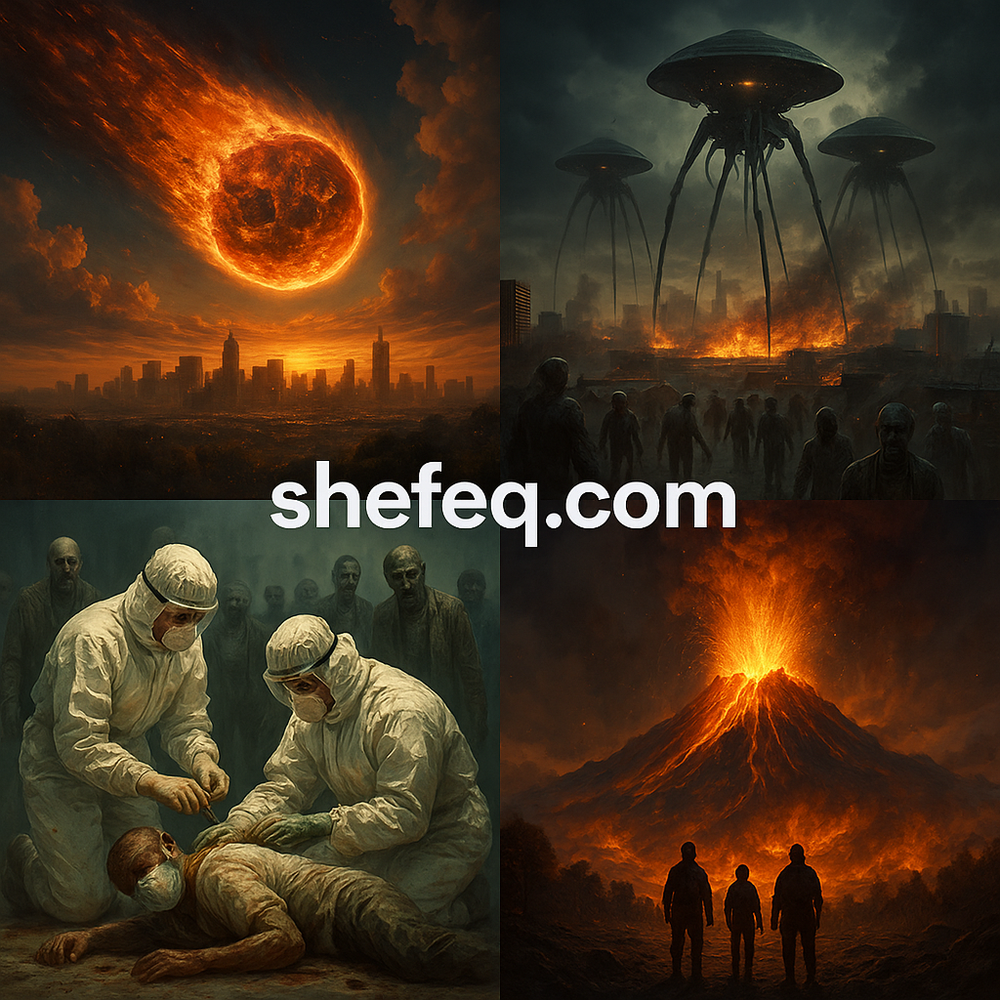Throughout human history, natural disasters, epidemics, and technological risks have always provided a basis for apocalyptic scenarios. However, under the influence of the media, these risks are often exaggerated, and fears appear greater than reality. Let’s take a look at five popular “end of the world” scenarios and understand why they are not worth worrying about.
1. Ebola Epidemic – Not a Global Threat
Ebola is a deadly disease, but its ability to spread is very limited. The virus is transmitted only through direct contact with the bodily fluids of an infected person. The three registered cases in the U.S. in 2014 and dozens of outbreaks in Africa showed that the main problem is not the virus itself, but poverty and weak healthcare infrastructure. With modern medical care and isolation, Ebola can be kept under control. Therefore, the scenario of this virus destroying the entire world is unrealistic.
2. Running Out of Oil – Not Anytime Soon
In the 2000s, the idea of “peak oil” became widespread: supposedly, the world would soon run out of oil, and prices would soar to hundreds of dollars. But reality turned out differently. The U.S. and Saudi Arabia increased production, and new technologies made it possible to extract oil from difficult deposits. Today, the main problem is not resource depletion but low prices, which slow down the transition to alternative energy. So the apocalyptic scenario of oil running out in the near future is unfounded.
3. Magnetic Pole Reversal – Won’t Bring Doomsday
Earth’s magnetic poles have shifted many times in history. This process takes tens of thousands of years and has never coincided with mass extinctions. Yes, satellites and some electronic systems may be affected, but this does not mean the end of humanity or life itself. A “magnetic reversal” is a natural geological process, not an apocalypse.
4. Large Hadron Collider – Won’t Create a Black Hole
The Large Hadron Collider at CERN was built to study the fundamental laws of physics by colliding particles. At its launch, some people feared it might create a “black hole that would swallow the Earth.” But according to current knowledge of physics, this is impossible. Even if miniature black holes were created, they would instantly evaporate due to Hawking radiation. Therefore, the LHC poses no apocalyptic risk; on the contrary, it makes a huge contribution to science.
5. Yellowstone Supervolcano – Won’t Erupt Anytime Soon
Yellowstone is one of the world’s largest active volcanoes and has erupted three times in the distant past. That’s why predictions of “the next eruption destroying America and the world” appear regularly. However, scientific data shows that the likelihood of such an event in the coming centuries is extremely low. The magma reserves there are insufficient for a massive eruption, and the U.S. Geological Survey predicts stability for centuries ahead.
Conclusion
Ebola, oil depletion, magnetic pole reversal, the LHC, and the Yellowstone supervolcano are often presented in the media as “apocalyptic scenarios.” But science and facts show that none of them pose a real threat to humanity in the foreseeable future. The real dangers we face are climate change, environmental pollution, and socio-economic inequality. Focusing on these is far more useful than being afraid of imaginary doomsday stories.

